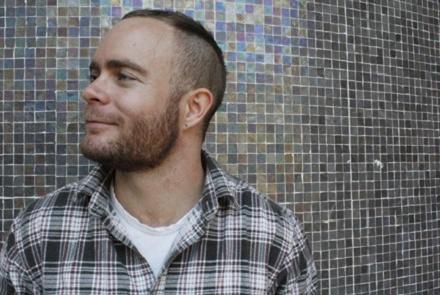
Out of Africa
Meet Timothy Kerr, a graduate of the Master of Applied Anthropology and Participatory Development who says education is the key to improving people’s lives.
“It really all started in 2010,” Timothy Kerr says. “I was working for a non-profit in Rwanda, Generation Rwanda, and that really piqued my interest in development. After that, there was really no turning back.”
Tim was working as a language coordinator, supporting students who will be instrumental in building Rwanda’s future.
“It was incredibly humbling, because watching your family being massacred in the forest when you’re five years old, how do you recover from that? Here were students who were not only recovering, they were thriving: there’s a 95 per cent success rate of Generation Rwanda’s students getting jobs.
“I’m really passionate about education and development and education’s ability to socially mobilise people and give them certainty in an otherwise uncertain future. After my experience in Rwanda, I really wanted to be more effective in the field, and get a sound theoretical and practical base. My previous study had been in English literature so I didn’t really know all that much about development and the challenges involved. The Master of Applied Anthropology and Participatory Development (MAAPD) has provided me with that sound base.”
Tim says he chose the MAAPD program at Crawford School of Public Policy because of the University’s reputation in the social sciences.
“Being really honest, the field of development is incredibly competitive. Even to get an internship you basically need a master’s. People I was working with in Rwanda have PhDs and master’s degrees from Harvard or Oxford, and I think it is really strategic to have qualifications from a university that is prestigious. ANU is the top university in the southern hemisphere so it was an easy decision.”
Tim recognises that his overwhelmingly positive experience in Rwanda isn’t representative of all development work. “It’s not always the case,” he says. “A lot of people can be quite disheartened in development.”
But, he says the MAAPD teaches a realistic, practical approach to development; opening his eyes to the institutional issues, the politics and the challenges in the field. “That’s crucial if you want to be an effective practitioner in the field,” he says.
“It’s a critique of academia that educators don’t have real-world experience or are in a bubble, but what’s great about the MAAPD is all of the educators have experience working in the field, so that really helps with the practical skills.”
Tim is already building his own real-world experience as a program officer for CARE Australia, working on the WASH (Water, Sanitation and Hygiene) program.
“It was really cool to see how relevant my MAAPD was to my work at CARE. The correlation between study and work, that direct link, was really encouraging.”
While enjoying being behind a desk for now, Tim hopes to gain more experience in the field, particularly focusing on his passion for education methodology and building teaching capacity in support of the UN millennium goal of universal primary education.
“Ideally, I just want to be hands on,” he says. “I’d be quite happy digging a well or delivering food parcels. That’s what I’m about, really tangible outcomes.”
And he would love to return to East Africa. In fact, he’s already started learning Swahili.
Updated: 13 July 2024/Responsible Officer: Crawford Engagement/Page Contact: CAP Web Team













